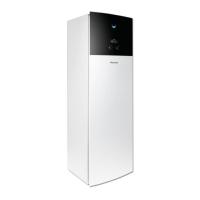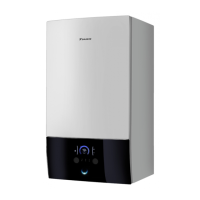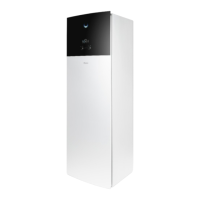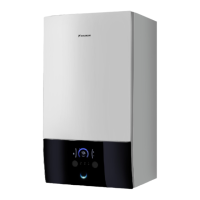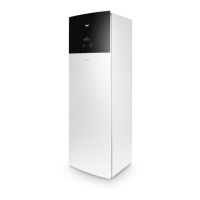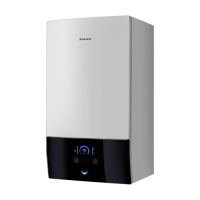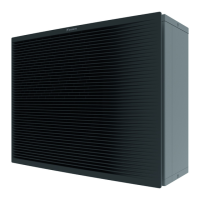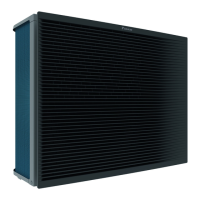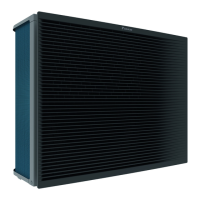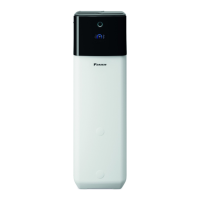6 | Application guidelines
Installer reference guide
58
EPRA08~12EAV3+W1 + ETBH/X12EF6V+9W
Daikin Altherma 3 H MT W
4P634885-1 – 2021.03
Example
Single-phase power meter Three-phase power meter
A Outdoor unit
B Indoor unit
C DHW tank
a Electrical cabinet (L
1
/N)
b Power meter (L
1
/N)
c Fuse (L
1
/N)
d Outdoor unit (L
1
/N)
e Indoor unit (L
1
/N)
f Backup heater (L
1
/N)
g Booster heater (L
1
/N)
A Outdoor unit
B Indoor unit
C DHW tank
a Electrical cabinet (L
1
/L
2
/L
3
/N)
b Power meter (L
1
/L
2
/L
3
/N)
c Fuse (L
1
/L
2
/L
3
/N)
d Fuse (L
1
/N)
e Outdoor unit (L
1
/L
2
/L
3
/N)
f Indoor unit (L
1
/L
2
/L
3
/N)
g Backup heater (L
1
/L
2
/L
3
/N)
h Booster heater (L
1
/N)
Exception
▪ You can use a second power meter if:
- The power range of one meter is insufficient.
- The electrical meter cannot easily be installed in the electrical cabinet.
- 230V and 400V three-phase grids are combined (very uncommon), because of
technical limitations of power meters.
▪ Connection and setup:
- Connect the second power meter to X5M/3 and X5M/4. See "9.3.4To connect
the electricity meters"[4117].
- In the software the power consumption data of both meters is added so you do
NOT have to set which meter covers which power consumption. You only need
to set the number of pulses of each power meter.
▪ See "6.5.4Preferential kWh rate power supply"[458] for an example with two
power meters.
6.5.4 Preferential kWh rate power supply
General rule
▪ Power meter1: Measures the outdoor unit.
▪ Power meter2: Measures the rest (i.e. indoor unit, backup heater and optional
booster heater).
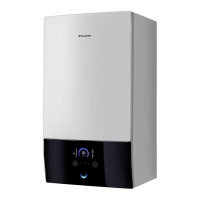
